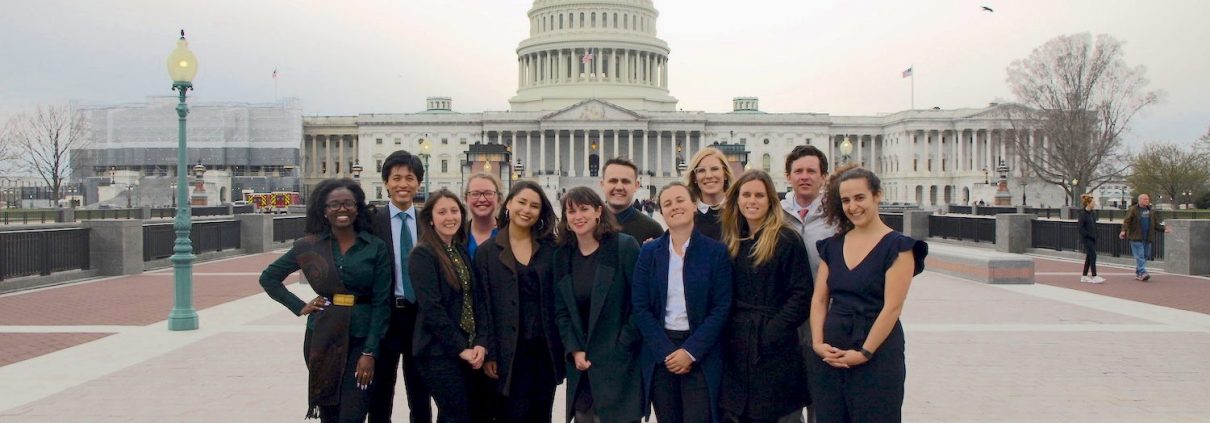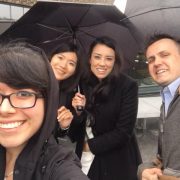Exploring Careers in International Development
by Charlotte Fagan and Tetsuro Hirose
This past week, through an opportunity with Global Public Affairs at Luskin, we visited Washington DC to visit with over 10 organizations working in International Development. As two students who have never worked in DC, this trip was an eye-opening experience to learn about the landscape of Washington DC, both in its importance to domestic policy and international work. We were both struck by the importance of DC as the central node to this work, and how organizations leverage being located in the same place to build trust amongst one another and learn from each other’s work.
In our first meeting with Jacob Veverka at USAID, he painted a picture of four broad categories of international development agencies – funders, multilateral agencies, implementing and evaluating entities, and advocacy groups. Over the course of four days we were able to meet with each type of agency and get a sense of where they intersect. For example, in a meeting with the Millennium Challenge Corporation (MCC), alumni Jeff Garnett talked about working on a power project in Ghana; the next day, Nick Ingwersen at Mathematica mentioned working as the evaluator on that project. It helped provide us with a concrete way of seeing how these different types of agencies intersect at which stages of their work. Another illuminating example was speaking with Beth Johnson (Basic Education Coalition) and Kevin Rachlin (InterAction) about their role as advocates in increasing congressional funding for specific development goals. This meeting, on the back of visiting with Zac Commins, a legislative aid in the House of Representatives, the day before, led to a tangible understanding of how advocacy impacts the policy that is crafted on Capitol Hill.
One of the best feelings coming away from this trip is that the classes and skills we are learning at Luskin are relevant, applicable, and desired by the places where we hope to work in the future, and that the Luskin network is thriving in DC. Many of the alumni we spoke with talked about how classes they took at Luskin directly impacted their work; more than once alumni mentioned Regional Economic Development with Professor Storper and Sectoral Analysis with Professor Wolff as particularly useful – which was goods news to us as both of us have taken these courses. All of our meetings emphasized the importance of networking in the field, and this trip gave us a jump start building our networks for future work.









